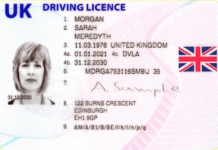Pregnancy is a journey filled with anticipation and adjustments, and for many, it includes continuing to navigate the roads. If you’re expecting and wondering how pregnancy might affect your driving and car insurance in the UK, you’re in the right place. James Granton, insurance specialists from Zego Insurance aims to guide you through the essential information about driving while pregnant, focusing on safety, insurance implications, and the potential legal nuances you should be aware of.
Safety First: Tips for Driving While Pregnant
Before delving into the insurance aspect, it’s crucial to prioritise your and your baby’s safety. Here are some practical tips for driving while pregnant:
Adjust Your Seat: Ensure your seat is positioned to provide both comfort and control. Your abdomen should be a safe distance from the steering wheel, and you should be able to reach the pedals comfortably.
Seat Belt is a Must: Wear your seat belt correctly. The lap belt should sit under your belly, low and snug on your hip bones, while the shoulder belt should rest between your breasts and off to the side of your belly.
Take Regular Breaks: Long drives can be particularly taxing. Plan for frequent breaks to stretch and walk around.
Stay Hydrated and Nourished: Keep water and healthy snacks in your car, especially for longer journeys.
Limit Stressful Situations: If possible, avoid rush hour or challenging driving conditions that might increase your stress levels.
Understanding Car Insurance While Pregnant in the UK
Your pregnancy should not directly impact your car insurance premiums or validity. However, it’s essential to understand the subtle nuances that might indirectly affect your coverage.
Notification: Is it Necessary?
Most insurers in the UK do not require you to notify them about your pregnancy. Pregnancy is a natural condition, not a medical condition that typically warrants disclosure. However, if your pregnancy leads to medical complications or conditions that your doctor says may affect your driving, you must inform your insurer and the Driver and Vehicle Licensing Agency (DVLA).
Potential Complications and Disclosure
If you experience pregnancy-related complications such as gestational diabetes or preeclampsia, and these conditions impair your ability to drive, failing to disclose this information might invalidate your insurance. In the event of an accident, if the insurer finds that such a condition contributed to the incident and was not disclosed, they may not cover the claim.
Maternity Leave and Car Usage
If you go on maternity leave and your car usage significantly changes (e.g., you’re no longer commuting to work), you might want to inform your insurer. This change could potentially reduce your premiums, as insurers often consider the car’s usage when assessing risk.
Legal Implications and Potential Fines
While there are no specific laws in the UK that prohibit pregnant women from driving, the usual road safety rules apply. However, certain scenarios related to pregnancy and driving can lead to fines or legal issues:
Driving Against Medical Advice: If your doctor advises you not to drive due to pregnancy-related conditions and you choose to ignore this advice, you could be fined or face legal action if you’re involved in an accident.
Incorrect Use of Seat Belt: Failing to wear a seat belt correctly is not only unsafe but can also result in a fine. Ensure your seat belt is adjusted to accommodate your pregnancy.
James Granton, from Zego Van & Car Insurance, says:
In conclusion, while pregnancy should not significantly alter your car insurance or your ability to drive, it introduces factors that are important to consider. Prioritise safety, understand the nuances of your insurance policy, and ensure you’re aware of the potential legal implications. By taking these steps, you can enjoy a smooth and safe journey throughout your pregnancy. Remember, when in doubt, consult with your insurer or seek legal advice to navigate the roads and insurance policies confidently.
Help keep news FREE for our readers
Supporting your local community newspaper/online news outlet is crucial now more than ever. If you believe in independent journalism, then consider making a valuable contribution by making a one-time or monthly donation. We operate in rural areas where providing unbiased news can be challenging. Read More About Supporting The West Wales Chronicle
























